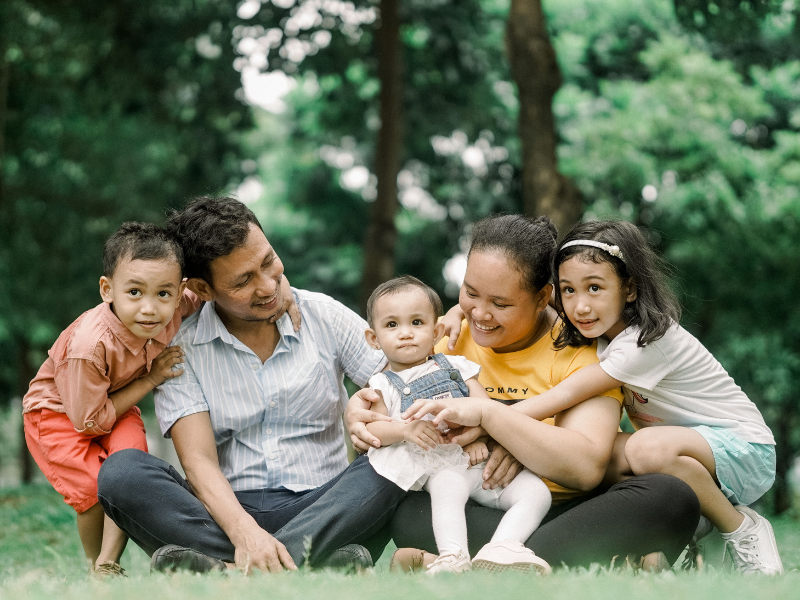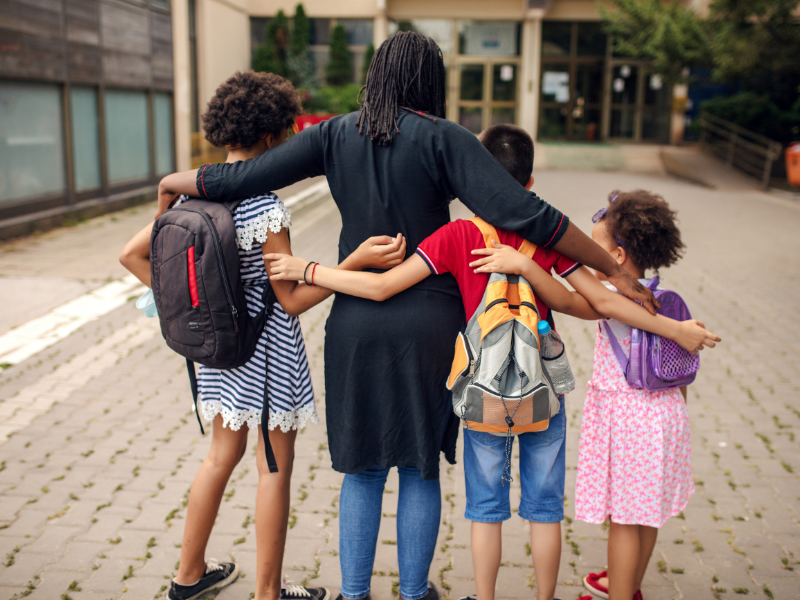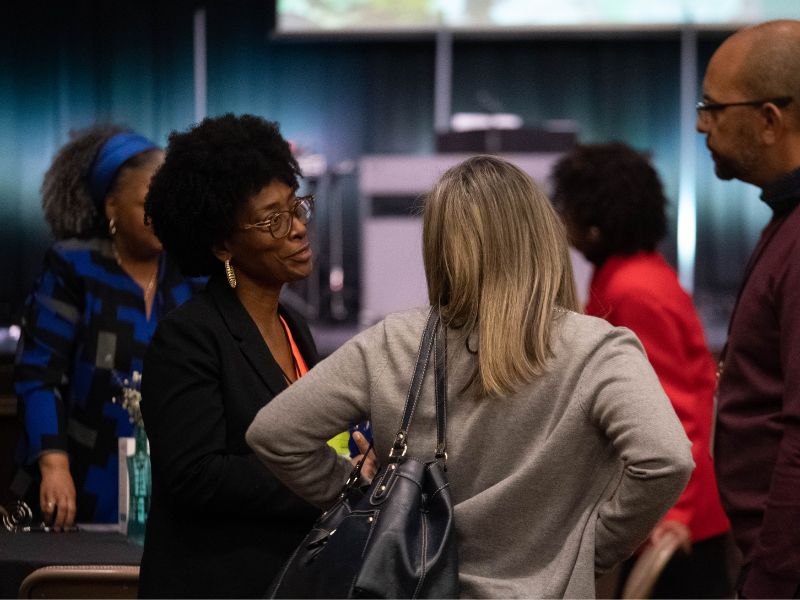
The two-parent privilege and how it helps families escape poverty

The two-parent privilege and how it helps families escape poverty
Key Points
- The decline in two-parent households is a major driver of income inequality and decreased social mobility in the United States.
- Two-parent households provide a significant “privilege” for children, leading to better educational and economic outcomes, lower rates of incarceration, and improved chances of achieving the American Dream.
- To alleviate poverty and strengthen two-parent households, policy proposals and grassroots cultural changes are needed, along with addressing the importance of fathers in society and promoting stable marriages and families without stigmatizing single parents.
Addressing Income Inequality
Income inequality is on the rise. Social mobility is on the decline. Politicians focus a lot of firepower on these two realities, but they too often ignore a major driver of these trends—one that might surprise you. That’s the drop in the percentage of stable, two-parent households.
At the Georgia Center for Opportunity, our goal is to reduce poverty and encourage human flourishing. Healthy families are a key part of that. What often gets shunted to the side in this discussion, however, is how much family composition matters.
Family Matters
Bravely entering into this political fray is Brookings Institution economist Melissa Kearney with her new book, The Two-Parent Privilege: How Americans Stopped Getting Married and Started Falling Behind. Coming from a centrist (if not center-left) worldview, Kearney provides a refreshing and clear-eyed assessment of the powerful role that marriage plays in reducing poverty and bolstering economic well-being for children, adults and the nation as a whole.
Kearney even frames her book title in terms progressives better understand by using the term “privilege”—precisely what two-parent households afford children across a spectrum of metrics ranging from educational outcomes to behavioral tendencies, rates of incarceration and the likelihood of achieving the American Dream.
Here, Kearney asserts, “The decline in the share of US children living in a two-parent family over the past 40 years has not been good—for children, for families, or for the United States.”
Going further, she says, “Based on the overwhelming evidence at hand, I can say with the utmost confidence that the decline in marriage and the corresponding rise in the share of children being raised in one-parent homes has contributed to the economic insecurity of American families, has widened the gap in opportunities and outcomes for children from different backgrounds, and today poses economic and social challenges that we cannot afford to ignore—but may not be able to reverse.”
Of course, nobody seeks to stigmatize or deny the heroic efforts that loving and dedicated single parents sacrificially pour out to raise their children in difficult circumstances. Indeed, Kearney argues for strengthening the safety net for all families—regardless of structure.
But as she shows, the data can’t be so easily dismissed by those who resist policy discussions involving family formation distinctions.
The data backs it all up
Consider: 2019 US Census statistics reveal that families headed by a single mother were five times more likely to live in poverty than families headed by a married couple, while families headed by a single father were nearly twice as likely to live in poverty.
Further, research shows that 40% of Millennials who grew up in two-parent homes graduated from college by their mid-20s, compared to 17% for Millennials from non-intact homes. Moreover, 77% of Millennials who grew up with the two-parent privilege attained a middle-class or higher lifestyle by their mid-30s, compared to 57% from non-intact families.
And then there are many studies from Utah, where—more than any other state—marriage and two-parent households are encouraged. Indeed, Utah ranks at the top of economic performance—including GDP growth, favorable business climate, work environment and high rates of economic mobility. And Utahns experience lower child poverty and criminality rates, while enjoying enviable levels of emotional and physical wellbeing, healthy behaviors, life evaluation, student educational performance, and median family income.
Taken together, these data suggest that stable, intact, two-parent marriages lay the foundation for strong families, which in turn create thriving communities of men, women and children.
To alleviate poverty by strengthening two-parent households, Kearney suggests several policy proposals:
- Work to restore and foster a norm of two-parent homes for children
- Work to improve the economic position of men without a college level of education so they are more reliable marriage partners and fathers
- Scale up government and community programs that show promise in strengthening families and improving outcomes for parents and children from disadvantaged backgrounds
- Have a stronger safety net for families, regardless of family structure
Stronger Families Create Thriving Communities
Our vision is one where everyone has the support that comes from healthy thriving relationships and family.
Stronger Families Create Thriving Communities
Our vision is one where everyone has the support that comes from healthy thriving relationships and family.
The Policy Prescription
In offering these policy prescriptions, however, she adds that economics and government intervention can only do so much. There must also be grassroots, cultural change at the neighborhood and community levels. That’s why marriage enrichment and parenting classes like Raising Highly Capable Kids are crucial to reducing poverty.
Commendably, Kearney addresses a related—and also politically sensitive—topic: The important role that fathers play in society. She writes, “The absence of a father from a child’s home appears to have direct effects on children’s outcomes—and not only because of the loss of parental income. Nonfinancial engagement by a father has been found to have beneficial effects on children’s outcomes.”
Indeed, a father’s presence in the home is particularly important for boys. As Kearney notes, “Boys and young men are faring worse than girls and young women on a host of behavioral, educational, and economic dimensions. This gender gap in outcomes has been linked to the heightened disadvantage boys face when growing up without a father figure in their home.”
Of course, this creates a vicious cycle: Boys growing up without their fathers have a higher likelihood of themselves falling into traps of poverty: “The more boys struggle and fall behind, the less prepared they will be as adults to be reliable economic providers as husbands and dads,” Kearney writes.
Here, she points to our country’s crisis of masculinity and how declining labor force participation rates by prime-age men contribute to the marriage problem. Recent cultural shifts have “stripped many men of their traditional role as breadwinner for the family and, in simple terms, made them less desirable marriage partners,” she writes.
Clearly, the challenge is how to promote stable marriages and families when males increasingly remain in perpetual adolescence and fail to assume adult responsibilities that lead to success in work, marriage, and family.
Where do we go from here?
So how can we build more two-parent homes? Certainly investing more in vocational education and apprenticeships for men will help—as will implementing criminal justice reform and addressing the pandemic of untreated mental illness and opioid addiction among men.
Beyond these, we should expand school choice so that impoverished children stuck in failing public school districts have an opportunity to achieve a good education. And we need to eliminate marriage penalties in programs like Medicaid and public housing that punish marriage and encourage single-parenthood.
But perhaps most of all we need to have a frank national discussion about the importance of two-parent families “without coming across as shaming or blaming single mothers,” as Kearney writes. “By being honest about the benefits that a two-parent family home confers to children, we can break the pattern in which social agnosticism treats all households as the same in terms of the benefits they deliver children.”











